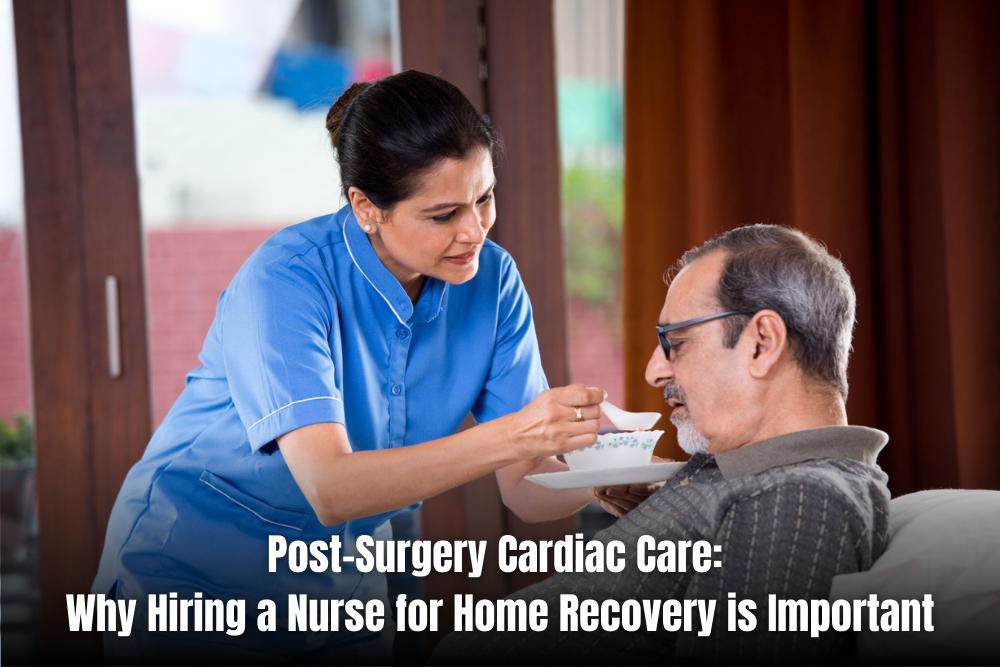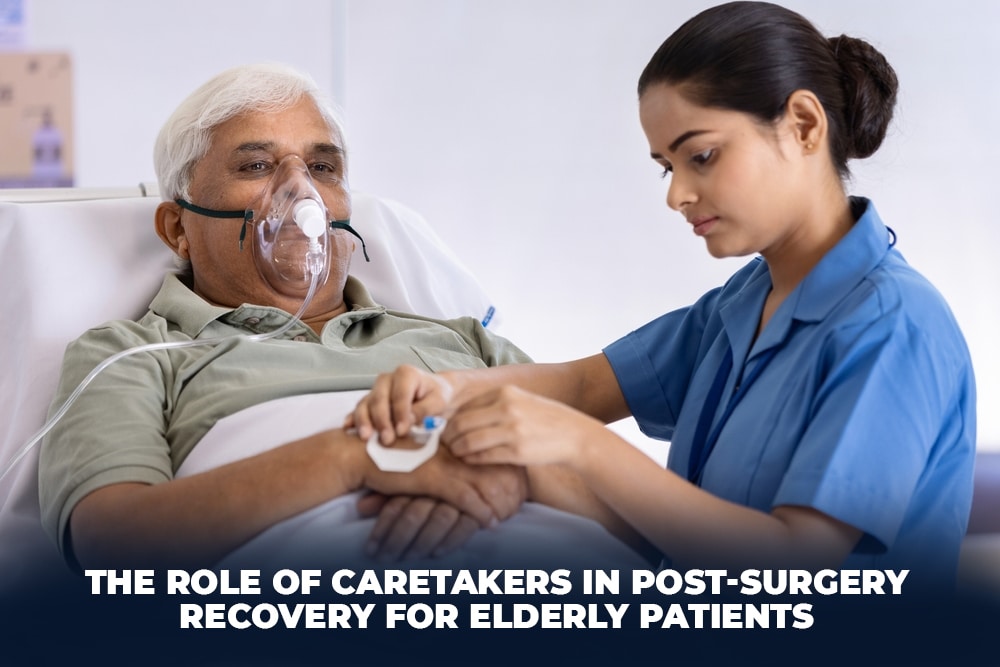When a loved one returns home after heart surgery, the road to recovery truly begins. The first few weeks are critical—filled with medications, lifestyle adjustments, restricted movements, and emotional ups and downs. For family members, especially those without medical training, managing this stage can be overwhelming.
That’s where a trained home nurse becomes essential.
In this article, we’ll explain why hiring a nurse for post-cardiac surgery care at home is important, how they help with daily recovery, and how this care ensures better health outcomes—especially for elderly patients in India.
Why Post-Surgery Cardiac Care at Home Needs Professional Support
Cardiac surgery (like bypass surgery, valve replacement, or angioplasty) weakens the body and requires:
- Strict medication and diet
- Monitoring of vitals like blood pressure, heart rate, and oxygen levels
- Restricted physical activity and supervised movements
- Timely wound care and infection prevention
- Emotional reassurance
A nurse brings both medical expertise and gentle care, helping patients recover in the comfort of their home without unnecessary stress or readmissions.
What Does a Nurse Do After Cardiac Surgery?
1. Monitors Vital Signs Daily
The nurse regularly checks:
- Blood pressure
- Heart rate
- Oxygen saturation
- Body temperature
These help detect any signs of complications like arrhythmias or infections early.
2. Manages Medication
After heart surgery, medications are prescribed for:
- Preventing blood clots
- Reducing cholesterol or blood pressure
- Managing diabetes (if present)
A nurse ensures correct dosage and timing and watches for any side effects.
3. Wound Care and Dressing
Post-surgical wounds must be kept clean to avoid infections. Nurses change dressings, watch for signs of pus, redness, or swelling, and guide patients on hygiene.
4. Assists with Daily Tasks
Elderly patients often need help with:
- Bathing and dressing
- Using the bathroom safely
- Sitting and standing with support
Nurses assist gently without straining the patient’s body.
5. Supports Physical Activity
The nurse encourages light walking or basic movement based on the doctor’s advice. This prevents stiffness, helps circulation, and boosts healing.
6. Provides Emotional Support
After surgery, patients may feel anxious, low in energy, or fearful. Nurses offer a calming presence and emotional reassurance, reducing stress.
Benefits for the Family
- Peace of Mind: You know a professional is watching over your parent or spouse.
- Reduced Readmission Risk: Many patients return to the hospital due to neglect or unmonitored issues. A nurse helps avoid that.
- Faster Recovery: Regular monitoring and care ensure the patient regains strength steadily.
- Time-Saving: Family members can focus on their jobs or other responsibilities while the nurse handles care.
When Should You Hire a Nurse After Cardiac Surgery?
- If the patient is elderly or weak
- If the surgery was major or complex
- If there are existing health issues like diabetes, COPD, or high BP
- If no one in the family has medical experience
- If you live away or cannot provide full-time support
Need Trained Nurses at Home in India?
At Shree Swami Samarth Patients Seva (www.sssps.in), we provide experienced nurses who specialize in post-surgery cardiac care at home. Our team:
- Follows doctor’s protocols strictly
- Ensures comfort, hygiene, and emotional support
- Offers 24/7 care options for those who need it
We’ve helped hundreds of families care for their loved ones after surgery with compassion and professionalism.
FAQs: Post-Surgery Cardiac Nursing Care at Home
Q1. How long is a nurse needed after heart surgery?
Usually, 1–2 weeks of full-time care are essential. Some patients may need longer depending on age and recovery.
Q2. Can a nurse help with physiotherapy at home?
Yes, nurses guide initial movements and can work alongside physiotherapists if needed.
Q3. What if the patient needs oxygen or medical equipment?
Our team helps arrange oxygen cylinders, ECG monitors, or any home medical setup you need.
Q4. Is home care better than hospital stay?
For stable patients, recovery at home is more peaceful and reduces hospital-acquired infection risks.
Q5. Can I trust the nurses from your service?
Absolutely. All our nurses are background-verified, experienced, and trained for cardiac and elderly care.
Conclusion
A smooth and steady recovery after heart surgery starts at home—with the right support. A trained nurse brings comfort, medical supervision, and much-needed relief for both the patient and the family.
Let Shree Swami Samarth Patients Seva (www.sssps.in) help you care for your loved one the right way. With our experienced nurses, your parent’s healing journey becomes safer, faster, and more peaceful.



